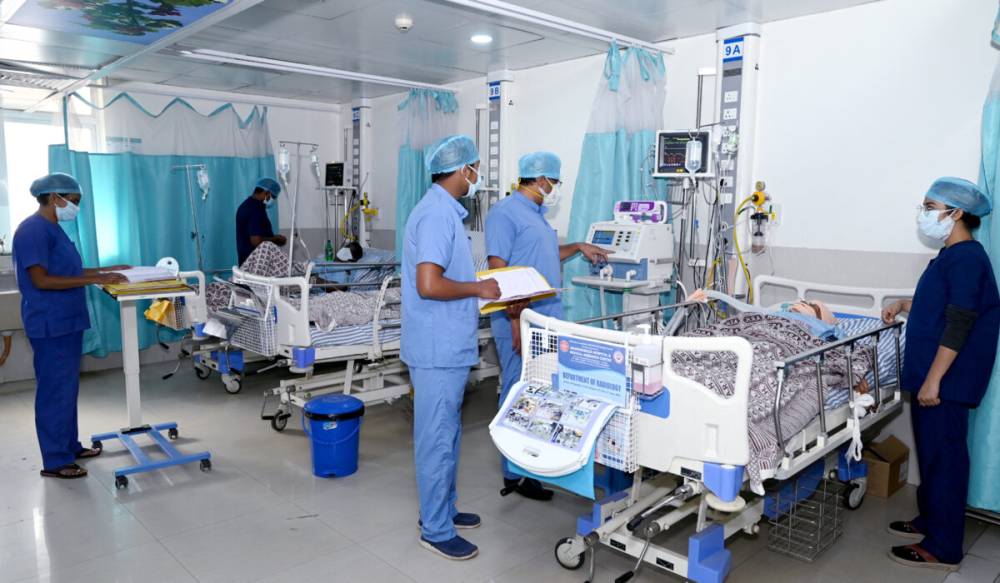
Prabha hospital is one of the best critical care hospitals in Agra. Dr BK Singh led the team of experienced doctors, Dr BK Singh Most Experienced Doctor in Intensive care, he also known as father of ICU in Agra.
Prabha hospital is one of the best critical care hospitals in Agra. Dr BK Singh led the team of experienced doctors, Dr BK Singh Most Experienced Doctor in Intensive care, he also known as father of ICU in Agra.
Critical care or Intensive care is a crucial medical specialty caring for patients who are critically ill. They may require support for instability (hypertension/hypotension), airway or respiratory compromise (ventilator support), acute renal failure, cardiac arrhythmias, or the cumulative effects of multiple organ failure, more commonly referred to now as multiple organ dysfunction syndrome. Patients needing intensive/invasive monitoring, such as in the crucial hours after major surgery or patients who are considered too unstable to transfer to a less intensively monitored unit may also be placed in the intensive care units.
The department of critical care medicine at Prabha Hospital is a combination of many specialties and technologies, offering the possibility of survival to patients who are acutely and critically ill. ICU management at Prabha Hospital is based on the fact that methodical organization of Critical Care services influences important overall outcome measures such as mortality, length of stay and infection rates. Our 24-hour critical care units are a combination of multidisciplinary ICUS as well as ICUS dedicated to post
Cardiac surgery patients, stroke patients, post-transplant patients, as well as special ICUs for neonates and pediatric cases. Prabha Hospital has redefined intensive care medicine in India through its medical expertise and state of the art infrastructure, establishing its services as the best critical care services in India.
At Prabha Hospital, a lot of emphasis is also placed on areas like nurses’ training, standardizing care through clinical pathways and the identification of ethical and economic issues pertaining to Critical Care making it the best critical care hospital in India.
Critical care specialists at Prabha hospital are dedicated to ensuring the survival of the most critically ill patients. Trained in the best of institutions, these dedicated specialists work 24 X 7 to revive critically ill patients. They also manage critical care units efficiently, ensuring that the whole team of doctors, nurses and paramedics work together, using strict protocols to minimize infections, complications and ensure speedy recovery.
Intensive care is needed if someone is seriously ill and requires intensive treatment and close monitoring, or if they're having surgery and intensive care can help them recover.
Most people in an ICU have problems with 1 or more organs. For example, they may be unable to breathe on their own.
There are many different conditions and situations that can mean someone needs intensive care.
Some common reasons include:
Patients on an ICU will be looked after closely by a team of ICU staff and will be connected to equipment by a number of tubes, wires and cables.
There will normally be 1 nurse for every 1 or 2 patients
This equipment is used to monitor their health and support their bodily functions until they recover.
Equipment that may be used on an ICU includes:
Someone in an ICU will often be on painkilling medicine and medicine that makes them drowsy (sedatives).This is because some of the equipment used can be uncomfortable.